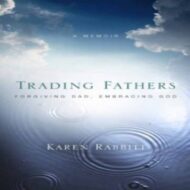My husband, Jerry, has been doing Cryptogram and Jumble puzzles for many years, but they just frustrate me. I see no strategies to begin an attack on the mixed up letters of the Jumble. Trying to make a word out of the nonsense letters is like trying to assemble a puzzle without a picture. Occasionally I help him with spelling because I’m better at that than he is, but mostly I turn away when I fail to get the answer immediately, even though I know they help keep aging brains in shape. But Tuesday, in the AARP newspaper, was a Sudoku puzzle that included an approach to getting started. The strategy made sense to me. I worked the puzzle. I liked it.
Maybe you have things like that in your life—activities you know would be good for you, but they just frustrate you because you can’t work out how to approach them. Sometimes we need someone to show us a way, like the newspaper information did for me. Or we need to put our mind to developing our own plan for our piles of papers so we keep them moving to where they belong—on the desk, in the filing cabinet, or out with the recycling. Or we need to plan to wash the sheets on Fridays, the kitchen floor on Mondays, and take the garbage out on Wednesdays. Of course, motivation could be the real issue, but sometimes we just need to learn management skills.
When I saw the logic of solving Sudoku puzzles, they seemed possible rather than frustrating. The skill seemed learnable. I had not even tried a Sudoku, because I’d assumed they were just as frustrating as the others. Some things are not as hard as they look. If we focus carefully, make a plan, and find some help, we can do what needs to be done.
Jesus, help us turn toward what we need to do today, focusing, planning, and asking for your help.
